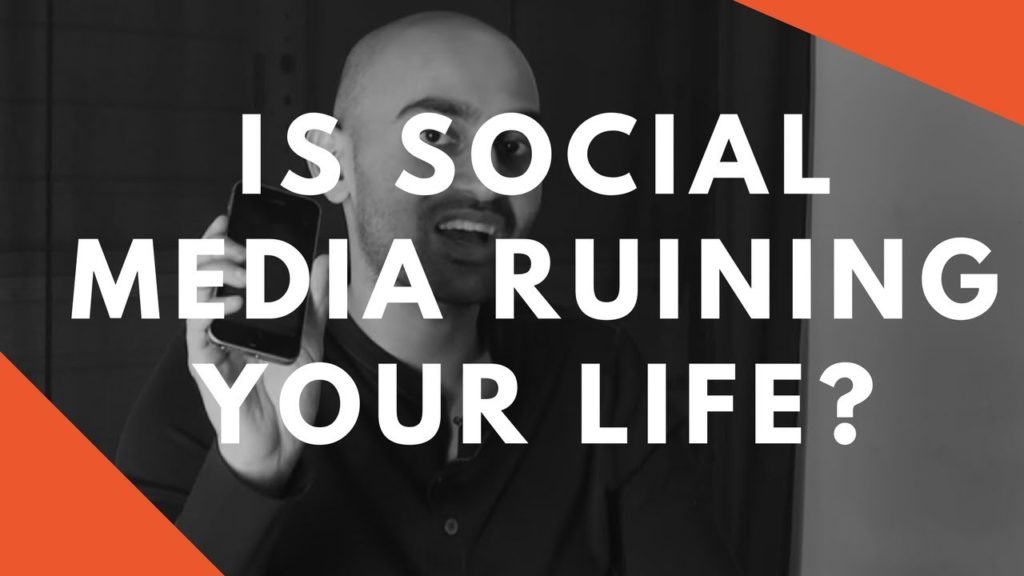Before you proceed to input your phone number and profile pictures on Facebook and WhatsApp, that is, if you haven’t done it already, you need to read this article to know what the consequences might be for your safety and privacy. People are getting harmed, duped, and illegally targeted by individuals, groups, or government agencies around the world. A lot have fallen victim to scams, physical assault, and government or cooperate blanket surveillance.
You may be uploading photos, posts, videos, and audio messages, thinking that no one except your friends has access to such information. The truth is, that thousands of people and companies around the world can monitor your Facebook, WhatsApp, or Instagram activities with permission from the owners of those social media platforms. Social media can endanger your life in many ways you might not have realized. Here are some of them.

Table of Contents
1. The Possibility of Addiction
One big problem with social media is that it can be addictive. And almost all addictions are destructive. The social media companies keep introducing more features to make it as attractive as possible. They design these features to retain any new user of the platform. The ideas for their new features are mostly derived from research. That means they can accurately decipher new things that will be most appealing to the public. What this leads to is a constant stream of interesting concepts that all serve the purpose of absorbing you deeper and deeper into social media life.
Anytime a new feature is added, you’ll very likely discover it either from your online string of mostly anonymous friends or from the constant spam messages delivered to your mailbox. Augmenting this addictive feature is even the general public interactions on the platform. There is a continuous stream of user-generated content in your feeds and notifications every day. People continually upload pictures, videos, and text messages for their friends to see. The sheer variety of these user-generated contents ensures you never lose interest in browsing through the never-ending string of uploads and posts. And the more time you give it, the more time you want to give. This vicious cycle continues until you can’t live a day without checking your account for new things, which there always are.
Once addicted to it, you are very unlikely to live without it. Not having access to social media for a couple of days will make you feel you are missing something very important in your life. Some people cannot afford to work a couple of hours without glancing at their phone screen. And this, in turn, leads to another big problem: distraction and time waste.
Read Also: How Students can use Social Media in the Classroom
2. Distraction and Time Waste
When you are addicted to something that consumes time, you are going to be giving it a lot of time because you just can’t help it. Among the first things you’ll do when you wake up in the morning is to check your online social accounts for updates. And probably the last thing you do before going to bed is chat with friends or view something they upload.
Because you are enjoying the online activity so much, it is highly unlikely that you’ll pay attention to time flying. Taking an hour to chat may just seem like five minutes. In most cases, you won’t even keep tabs on the amount of time you spend online. And the worst part with addiction wasting your time is that once you log on to your social media account, it becomes difficult to log out. You’ll be very reluctant to leave it for anything else. When you manage to log in, it is still very easy to log in again. The temptation will be just too great for you. This culminates in insignificant distraction from whatever you are doing. It teaches you the bad habit of procrastination because you are always going to be putting off tasks you’re supposed to do right away.
You are reading for your exam, working on a project, or learning some new skill when suddenly you get the beep from your phone that tells you somebody on Facebook wants your attention. Especially that cute girl or guy you sent a message to and are hoping for a reply. Well, you’ll drop your book or whatever you were doing at the time to look-see. And before you know it, you’ve spent 30 minutes not doing what you are supposed to be doing at the moment.
Combine distraction with the length of time you spend every day on Facebook, and you’ll get hours gone with nothing to show for it. Imagine you spend three hours on Facebook, WhatsApp, and Instagram every day and lose another one hour due to distraction. That is a total of four hours. Multiply that by one week, and that gives you 28 hours. Multiply 28 hours by one month, and that gives you approximately 112 hours. Then multiply by one year, and you have 1336 hours. That is the number of hours you waste on social media every year if you spend 4 hours on it daily. Some people spend up to six or seven hours a day on average.
Imagine what you could do in 1336 hours! If you are a student, you could read and absorb up to 20 books. If you are learning a skill online, you could have mastered it in half that time. Finally, if you were learning a language online, you could do it in a third of that time. There are many things you can achieve in 1336 hours, but that precious time has been wasted flirting online. Such time waste leads us to the next big problem of social media: undermining productivity.
3. Social media can undermine your productivity.
To be productive, we need to give a lot of time, concentration, and effort to what we ought to do at any given time. Even doing all these things doesn’t guarantee that we’ll succeed with our targets. But that is the best we can do. However, social media is a big hindrance for most people. Its big problem comes in the form of interfering with how much time, attention, and effort you put into doing something worthwhile. We all have 24 hours a day and seven days a week. And because our lives are finite, time is something we cannot afford to mismanage. We can also not afford to be distracted from putting in the right amount of effort in completing any task. Otherwise, we risk not achieving our life goals, without which our lives will be meaningless at most.
Lack of productivity breeds a lot of problems aside from leading a meaningless life. You can lose your job or lose a client due to distractions that prevent you from doing the right thing at the right time. You can also fail your exams for the same reason and graduate with a very poor grade that makes it difficult for you to get a job. When all you needed to do to change was concentrate on your studies for a limited number of years. When you are fond of social media, you can be sure it is and will interfere greatly with your ability to get things done.
Read Also: 7 Social Media Hacks Graduates Can Use to Land their First Job
4. It Can Be a Waste of Money
This one might seem illogical, but some people do spend considerably on social media. Mainly, they spend to have access to the internet. With the constant stream of videos, audio, and heavy graphics on social media, no amount of monthly data subscription might be enough for some people. Some people don’t skip a monthly data subscription just to access social media, and others even subscribe multiple times a month. The amounts they spend may not appear much, but over time, they accumulate to a substantial quantity.
I have a friend who isn’t earning much in a month but who cannot live without a substantial data subscription on his SIM. He spends about N2000 or more every month just to watch fun videos on social media, even though he often goes broke and can’t afford at the moment to pay his rent alone. Yet he spends close to half of his rent on subscriptions to access social media. Some spend a lot more than that. The fact is, had there been any major benefit they derive from this enormous attention they give to social media, their expenditure on data bundles would be justified. Instead, they are spending on something that robs them of time, effort, and concentration. No matter how meager this amount may appear, it still amounts to a waste.
5. It Can Lead You to Extravagance and Depression
You may be chilling out on social media when someone suddenly talks about a place they visited in a particular city and how much they enjoyed spending time at that place. It is possible that you are the type that likes to travel, or you could be preparing to make a journey there. And this might not be just one place—different people might talk about different places. The description and gossip about such locations may be too tempting for you. And as soon as you get to the city, you start making inquiries about the locations of these places.
It could be that you’ll burn a lot of money by the time you are through spending time at such locations. The problem is that under normal circumstances you probably might not have visited such areas, but because you consumed a lot of gossip about them on Facebook, you couldn’t help but satisfy curiosity. This does not only have to be someplace or event but can also be material things like fashion and other things of interest to you. And if you don’t have the money to buy such things or visit those places, you may feel depressed.
Where social media can make you feel frustrated is when you see people having things or becoming what you yearn for but don’t have. This is particularly the case if they are someone you know personally and who has made achievements you can only dream of at the time. And that reminds you of your failures and troubles. Anything that reminds you of negative things about yourself isn’t good, except in a way that motivates you to improve.
Read Also: 10 Things You Can Start Doing On Social Media to Be Financially Free
6. Exposure to Too Much Advice and Ideas at the Same Time
There are different types of people on social media, and many have the wrong ideas or information about something of importance to you, and that includes your online friends. Some people confide in friends online for advice on tackling some challenges in their lives. Because they are probably talking to many people, these people will likely overwhelm them with different devices. It often ends up confusing the one soliciting advice or even leads them to accept the wrong one. Many have worked with advice or ideas they got online and regretted it.
7. Social media can have a significant effect on your marriage and relationships.
Taking into account our society today, where men and women mingle freely in schools, marketplaces, and other places, you might have met a boyfriend whom you love. And when you get married to someone else, you may one day meet him on social media and start flirting, thinking that it is no big deal since you don’t intend to be intimate with them in any way. The fact is most partners are very jealous, and only very few can overlook such behavior. Your partner is very likely to start suspecting you of having an affair with this person. Some partners will even go as far as respecting your personal life regardless of social media or not. Your willingness to have a romantic chat with an ex-boyfriend or a new man will almost certainly plant doubt in your heart. A lot of relationships and marriages have broken up over social media issues.
So before you marry, if you were very much attached to Facebook, Instagram, or Twitter, you may find it very difficult to give up on these things after marriage. And as you frequent Facebook and other social media, the possibility of meeting someone you like or your high school crush gets higher.
It is also possible to meet someone online who is more appealing than your husband or your wife. That is a great source of temptation. Before you know it, you’ll find that person so attractive that you are willing to meet them face-to-face. It could even be somebody you know or you live in the same town with.
Read Also: Do’s and Don’ts of personal branding on Social Media
8. Social media can be dangerous.
One major effect of social media on your life is the way it can impact your security and privacy. Because social media attracts a huge number of people around the world, it is a fertile ground for spammers and virus writers to operate. Many have had their information security and privacy invaded by falling for tricks on social media.
Dating and romance scams are very common on Facebook. Some people meet strangers online, and after becoming friends, they start exchanging messages until they fall in love with such strangers. And then their new-found lover will trick them into giving money or revealing some very important information about themselves. Some are even deceived into meeting this very strange person only to better get harmed at last.
There is the case of this woman who met an American serviceman on all social media. She was new to using Facebook. Her children signed her up on Facebook and showed her how to use it. She was contacted by an American soldier who claimed to be serving in Afghanistan at the time. They chatted many times and became very friendly. One day he told her that he just lost his wife to cancer and described how he looked after his wife until she passed away. His story was similar to hers. Her husband also died of cancer in her care.
Whether his story was a coincidence for he had advanced knowledge regarding her past is anyone’s guess. But what he said made the two of them. He later told her that he had been posted to Nigeria and his service in the US military was nearing its end. He sent her many pictures, which were most likely stolen from someone on the internet, and always emphasized just how much she was looking forward to being with her. She received messages through email daily.
He would later tell her stories about how he could not use his ATM card in Nigeria and how he needed money to pay for export duties on some gemstones he got for cheap in Nigeria. Whenever she sent him money, another request came up, and then she kept sending money until she spent about one hundred thousand dollars. Still, the request didn’t stop. There was always one compelling reason or the other for her to send more money. Finally, she began to suspect this was not right and then contacted the police, who informed her story was similar to dating and romance scams on the internet. That was how this woman was swindled out of thousands of dollars by an online scammer.
There are many more scam victims as a result of social media. And the scammers always come up with new and trickier ways of deceiving their victims. Some fall for betting and lottery scams; some are inheritance scams; others are travel price scams; and many more fall for investment scams.
Read Also: 5 People Who Social Media Ruined Their Career
9. Global Blanket Surveillance
One of the major ways social media can put your security and privacy in danger is true government or corporate surveillance. Did you know that everything you typed, uploaded, shared, downloaded, chat history, and pretty much all of your activities on Facebook have been documented permanently? Third parties and government agencies or businesses can access and use that information to target you in one way or another. This is a very serious problem that everyone using Facebook, WhatsApp, or Instagram is certainly a victim of.
So if you wouldn’t want anyone accessing some kind of information about you, whether a government entity or not, then you had better be mindful of what you post, upload, download, and say when chatting or having a voice or video call. This is a global problem that deserves an article of its own.
Governments around the world target certain groups of people based on race, religion, or other demographic factor to collect information about these people and then come up with ways to target these people with disinformation or other propaganda aimed at instigating a revolt, an armed rebellion, or even civil war to overthrow a government. America is a very good example of countries that practice such destructive policies targeting governments around the world for regime change through violent means.
Any organization that manages to access that data can also use it to target a person or a group of people for both legitimate and illegitimate purposes. It is for this reason that Facebook requests your phone number and profile picture when you open a new account. That means they automatically have your picture and phone number and know where you’re from because phone numbers are registered and give the exact locations of the owners. With such information, you could easily be targeted for one reason or the other.
As long as you’ve ever used any of these social media platforms and signed up with your details, including contact details, pictures, and other information, then you can be sure that you have at least been covered in this global surveillance. It is also for this reason that other social media platforms were designed purposely to make the user anonymous, that is, giving people an alternative to using Facebook, WhatsApp, or Instagram, which is very intrusive and can be detrimental to your safety.
As a warning, any social media platform or app that demands your phone verification or your picture should be avoided. Also refrain from using Gmail, Yahoo, and any email provider that requests phone verification. Go for email services like Posteo, Tutanota, or Protonmail, and use them to sign up on social media platforms that don’t request phone verification or pictures.
While social media has immense benefits for providing a cheap alternative for messaging and voice or video communication, such services almost always come at certain costs to the user. This article should be an eye-opener to those who use social media ignorantly. It also serves to provide food for thought on better ways to protect your safety and privacy.
Read Also: How to get loans to study in the USA and Canada








